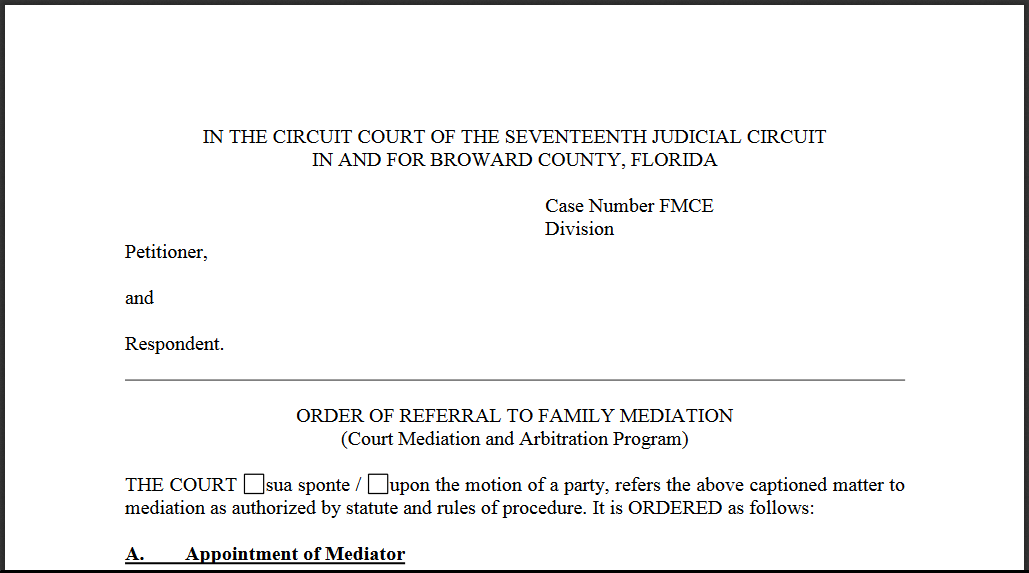Order of Referral to Family Mediation

Whether you are involved in a divorce, paternity action, parenting plan modification, relocation, or almost any other contested Florida family law matter, you or your attorney will likely receive an Order of Referral to Family Mediation.
Though some meditations are held at the Courthouse, going to mediation is very different from “going to court.” If you have never been to mediation before, you can read more about the process here: Mediation.
If you receive an Order of Referral to Family Mediation from the Court, it’s important to remember that you are dealing with a Court Order, so you should be sure to pay attention to the details regarding your specific program or terms, and any other information contained in the Order. Your order may include the appointment of a specific mediator, terms to agree on a specific mediator, or a referral to a mediation program. Often, the order will include specific details about the mediator’s fee and how much each party will pay toward the fee. You might also find other details in a Notice of Mediation, often filed in the case, and used to notify the Court of the mediation.
In advance of mediation, the order may require certain evidence or discovery be exchanged, or provide details regarding the submission of a written case summary to the mediator. Sometimes it’s difficult to settle at mediation if outstanding discovery and evidence issues remain.
Hiring an attorney to represent you at mediation, or at the minimum, consulting with an attorney prior to mediation, can help ensure that your evidence and prior case filings, or case record, has the foundation necessary to obtain your goals. Preparation for mediation is important because agreeing to a fair settlement at mediation can help avoid the additional cost and potential damage of going to trial.
Contact us today to speak with an attorney about your divorce or family law case.
This is NOT LEGAL ADVICE. It is intended for informational purposes only and should not be relied on to make any legal or other major decisions. If you have specific questions or inquiries regarding any of this information, you should consult with an attorney licensed in your state.

